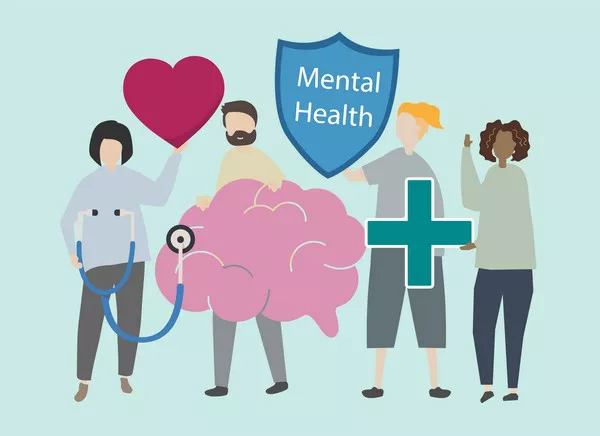Mental health is an integral part of overall well-being, affecting how we think, feel, and interact with the world around us. As health experts, we understand that maintaining good mental health is crucial for leading a fulfilling and productive life. This article provides a detailed introduction to the strategies and practices that contribute to mental health, offering a professional perspective on the steps individuals can take to foster their psychological well-being.
The Foundation of Mental Health: Self-Awareness
Understanding Your Emotions: The first step towards good mental health is recognizing and understanding your emotions. Being aware of your feelings allows you to address them effectively and seek support when needed.
Self-Reflection: Regular self-reflection helps you identify patterns in your thoughts and behaviors that may impact your mental health. Journaling or meditation can facilitate this process.
Building a Support Network
Social Connections: Strong social connections are vital for mental health. Engaging with friends, family, or support groups can provide emotional support and a sense of belonging.
Professional Help: Seeking help from mental health professionals like therapists, counselors, or psychiatrists is crucial when facing mental health challenges.
Maintaining a Healthy Lifestyle
Nutrition: A balanced diet rich in fruits, vegetables, lean proteins, and whole grains supports brain function and mental health.
Physical Activity: Regular exercise releases endorphins, which are natural mood elevators, and can help reduce symptoms of anxiety and depression.
Sleep: Prioritizing sleep is essential for mental health. Aim for 7-9 hours of quality sleep each night to support cognitive function and emotional regulation.
Managing Stress
Stress-Reduction Techniques: Techniques such as deep breathing, progressive muscle relaxation, and mindfulness meditation can help manage stress and promote relaxation.
Time Management: Effective time management can reduce stress by creating a balanced schedule that includes work, leisure, and self-care activities.
Cognitive Strategies
Positive Thinking: Cultivating a positive mindset can improve resilience and overall mental health. This involves challenging negative thoughts and focusing on the positive aspects of life.
Goal Setting: Setting realistic and achievable goals provides a sense of purpose and direction, which can boost self-esteem and motivation.
Emotional Regulation
Expressing Emotions: Openly expressing your emotions through conversation, creative outlets, or physical activity can provide relief and prevent emotional buildup.
Empathy and Compassion: Practicing empathy and compassion, both towards oneself and others, can foster emotional intelligence and improve interpersonal relationships.
Continual Learning and Personal Growth
Lifelong Learning: Engaging in continuous learning and personal development can enhance self-efficacy and adaptability, contributing to mental well-being.
Adaptability: Developing adaptability skills allows individuals to navigate life’s changes and challenges with greater ease, reducing stress and anxiety.
Preventing Mental Health Disorders
Early Intervention: Seeking help early in the onset of mental health symptoms can prevent the escalation of conditions and improve treatment outcomes.
Crisis Planning: Having a crisis plan in place can provide a sense of control and reduce the fear associated with potential mental health crises.
Workplace Mental Health
Work-Life Balance: Maintaining a healthy work-life balance is crucial for preventing burnout and managing stress.
Employee Assistance Programs: Leveraging employee assistance programs and workplace mental health initiatives can provide additional support and resources.
Mental Health in Later Life
Cognitive Stimulation: Engaging in activities that stimulate the brain, such as puzzles, reading, or learning new skills, can help maintain cognitive health in older adults.
Social Engagement for Seniors: Participating in social activities and maintaining social connections are essential for mental health in later life.
Embrace Change
Life is full of changes, and learning to embrace them can foster resilience. Here are strategies to navigate change effectively:
Adaptability: Cultivate a mindset that is open to change. Recognize that change can lead to growth and new opportunities.
Focus on What You Can Control: In times of change, concentrate on aspects of your life that you can influence. This can reduce feelings of helplessness.
Seek Support: During transitions, don’t hesitate to reach out for support from friends, family, or professionals. Sharing your feelings can ease the burden of change.
Maintain a Balanced Lifestyle
A balanced lifestyle is crucial for mental health. Strive to integrate various aspects of life harmoniously.
Work-Life Balance: Set boundaries between work and personal life. Prioritize time for relaxation, hobbies, and social connections.
Avoid Substance Abuse: Be mindful of alcohol and drug use, as these can negatively impact mental health. Seek healthier coping mechanisms for stress.
Engage in Lifelong Learning: Continuously seek opportunities to learn and grow. This can enhance your sense of purpose and fulfillment.
Conclusion
Good mental health is not a one-size-fits-all concept; it is a personalized journey that requires self-awareness, support, and proactive self-care. By adopting the strategies outlined in this article, individuals can take significant steps towards nurturing their mental health and enhancing their overall quality of life.
Related Topics:

